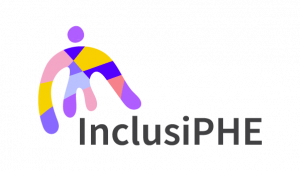ECHO present: What is necessary for minoritized communities of students and their families to exercise their opportunities in society and in education?; Who are minoritized students in the Dutch context?; What initiatives are being funded and supported by the Dutch Ministry of Education, Culture and Science promoting diversity and inclusion in education? At the end of the presentation a dialogue was facilitated on the need to embed inclusion in education and intentionally inviting diverse perspectives into the conversation so as to better ensure conditions to making ALL students’ right to higher education more impactful and meaningful.
At the end of this module you will be able to: 1. Analyze and interpret verbal, non-verbal, informative and persuasive messages 2. Understand how problems in communication arise 3. Apply appropriate techniques in order to improve communication with a variety of different people including students 4. Create messages tailored to different levels of communication and choose appropriate communication tools depending on the purpose 5. Understand the dilemmas associated with conducting discussions in a multicultural context 6. Apply the principles of intercultural communication
In this site information is provided on the support members of ETH Zurich can find in requesting a hearing to address difficult situations at work and at the univeristy including whistleblowing in the event of suspected illegal behavior by members of ETH Zurich or other cases of problematic behavior in terms of violations of the Compliance Guide. The ombudspersons carry out their mandate based on the ethical standards from the International Ombudsman Association.
The general objective of the project Student Participation Without Borders (STUPS) is to increase student participation and lay the foundations of a European network focusing on the development of new practices to promote student participation with the aim of finding genuine solutions to one of the most pressing challenges of higher education.
To complete this goal, specific objectives of the project seeks to increase and improve the knowledge, cooperation, training and awareness of student participation, which is an invaluable source of social innovation. This is key to establish efficient governance and a more inclusive higher education system.
The report features different institutional strategies and measures and analyses success factors, challenges and needs for support to build institutional capacity. Furthermore, it gives examples of different institutional practices and approaches. The idea that diverse learning environments may better prepare students for a diverse society and diverse research environments is gaining ground. The report presents a useful European overview and timely background information for the various policy debates that are currently taking place in different fora, such as the Bologna Process, where new approaches towards strengthening the social dimension of higher education are being explored.
Inclusionary is designed to empower the individual to take the initiative to make change in their organisation. Interested organisations are welcomed to take an introductory quiz to see where their organisation currently stands. Based on the quiz, the online tool will give direction to take positive steps to achieve their organisational goal, with workshops, events and support from OBESSU where possible.
Inclusion or equity in digital educational contexts requires a purposeful design that makes the most of the opportunities and overcomes potential challenges associated with the use of technology, paying particular attention to the challenges affecting underserved students. This requires a new pedagogy and this handbook seeks to empower teachers with skills for inclusive digital education in online, blended, and hybrid learning environments. The knowledge developed in this project is also distributed through e-learning modules for teachers, an Awareness Raising Tool, and the e-Inclusion course, piloted at the Universitat Oberta de Catalunya in 2022.
The first part of the tool guides the user in their personal, individual reflection process, via a journey through seven engagements that takes the participant through various insights and scenarios. Besides relevant concepts for e-inclusion, the engagements explain the role of overlapping contexts in social dynamics. This journey can be done individually and asynchronously.
There are six key areas that the micro modules focus on including: Area 1: How to challenge your own perspectives and practice self-reflection; Area 2: How to recognize and cater to diversity in digital classrooms; Area 3: How to design effective and engaging digital learning strategies for diverse learners; Area 4: How to create and make use of diverse, meaningful digital learning content; Area 5: How to cultivate an inclusive, engaging online learning climate; Area 6: How to build organizational alliances for digital inclusive education.

